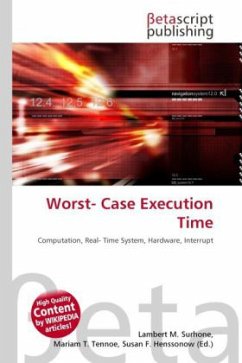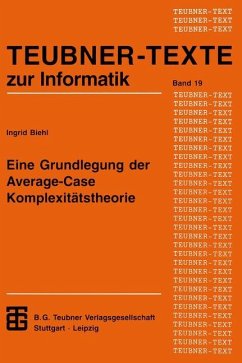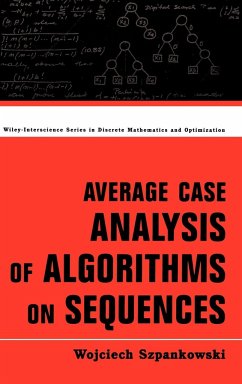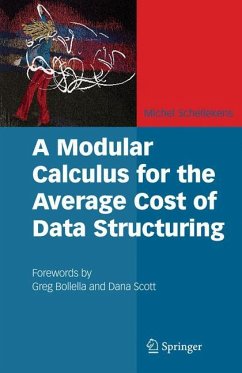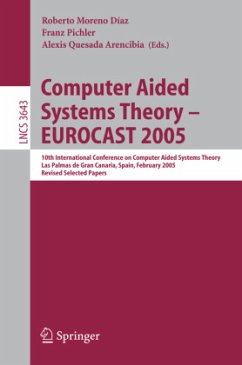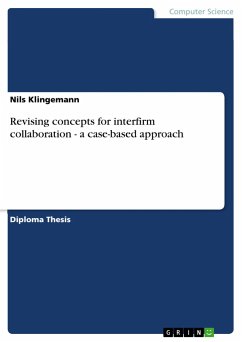
Best, worst and average case
Versandkostenfrei!
Versandfertig in 6-10 Tagen
23,99 €
inkl. MwSt.

PAYBACK Punkte
12 °P sammeln!
Please note that the content of this book primarily consists of articles available from Wikipedia or other free sources online. In computer science, best, worst and average cases of a given algorithm express what the resource usage is at least, at most and on average, respectively. Usually the resource being considered is running time, but it could also be memory or other resources. In real-time computing, the worst-case execution time is often of particular concern since it is important to know how much time might be needed in the worst case to guarantee that the algorithm will always finish ...
Please note that the content of this book primarily consists of articles available from Wikipedia or other free sources online. In computer science, best, worst and average cases of a given algorithm express what the resource usage is at least, at most and on average, respectively. Usually the resource being considered is running time, but it could also be memory or other resources. In real-time computing, the worst-case execution time is often of particular concern since it is important to know how much time might be needed in the worst case to guarantee that the algorithm will always finish on time. Average performance and worst-case performance are the most used in algorithm analysis. Less widely found is best-case performance, but it does have uses: for example, where the best cases of individual tasks are known, they can be used to improve the accuracy of an overall worst-case analysis. Computer scientists use probabilistic analysis techniques, especially expected value, to determine expected running times. The terms are used in other contexts; for example the worst- and best-case outcome of a planned-for epidemic, worst-case temperature to which an electronic circuit element is exposed, etc.



